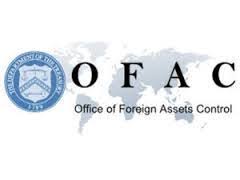Interactive Brokers Settles with OFAC for $11.8 Million for Violations of Multiple Sanctions Programs
The U.S. Department of the Treasury’s Office of Foreign Assets Control (“OFAC”) announced on July 15, 2025, that Interactive Brokers LLC (“IB”)—a globally active electronic brokerage firm headquartered in Greenwich, Connecticut—agreed to remit $11,832,136 to resolve its potential civil liability for a staggering 12,367 apparent violations of multiple U.S. sanctions programs. The violations, which spanned from approximately July 15, 2016 through January 31, 2024, implicated nearly every category of U.S. economic sanctions—ranging from the long-standing comprehensive sanctions regimes targeting Iran, Cuba, Syria, and Crimea, to more recent measures adopted pursuant to Executive Orders 14024 and 14071 in response to Russia’s aggression against Ukraine, as well as programs targeting corruption and human rights abuses under the Global Magnitsky and Venezuela sanctions frameworks. Notably, the matter also involved prohibited dealings in securities of Chinese military-linked issuers under the evolving Chinese Military-Industrial Complex (“CMIC”) program, underscoring the vast sanctions exposure confronting financial institutions operating on a global scale.

IB’s apparent violations included the provision of trade execution, clearing, and settlement services to more than 200 accountholders located in comprehensively sanctioned jurisdictions, including Iran, Cuba, Syria, and the Crimea region of Ukraine. According to OFAC, these individuals executed nearly 12,000 transactions over a five-year period using IP addresses or login metadata indicating physical presence in embargoed jurisdictions, even though many had submitted Know Your Customer documentation reflecting residence in non-sanctioned countries. The firm maintained IP blocking and sanctions screening protocols, but a combination of technical bugs, incomplete IP lists (most notably excluding Crimea and the city of Sevastopol), and overreliance on representations from third-party introducing brokers permitted impermissible access to its electronic trading platform. These deficiencies resulted in apparent violations of the Iranian Transactions and Sanctions Regulations (“ITSR”), the Cuban Assets Control Regulations (“CACR”), the Syrian Sanctions Regulations (“SySR”), and Executive Order 13685 concerning Crimea.
Additionally, from February to October 2022, IB processed 259 customer funds transfers to accounts at Russian financial institutions previously designated under Executive Order 14024. These transfers occurred after the banks had been blocked and were carried out under a misapprehension that available general licenses permitted such activity. This misunderstanding resulted in further apparent violations of Executive Order 14024 and the implementing Russian Harmful Foreign Activities Sanctions Regulations (“RuHSR”). IB also processed 29 securities transactions for U.S. persons involving Chinese issuers sanctioned under Executive Orders 13959 and 14032 for their connections to China’s Military-Civil Fusion program. These trades were automatically triggered by margin liquidation mechanisms that failed to incorporate screening for sanctions-restricted securities—a control gap that remained unresolved until well after the violations occurred.

OFAC’s multi-year investigation revealed that IB also provided margin lending to Russian Federation-based customers in contravention of the investment ban imposed under Executive Order 14071. Despite controls designed to restrict margin access, a technical deficiency allowed two accounts held by Russian residents to reactivate permissions and execute 66 margin loans between April and December 2023, generating interest income for the broker. Similarly, the firm processed securities transactions involving an issuer owned by Xinjiang Production and Construction Corps (“XPCC”), a Specially Designated National sanctioned under the Global Magnitsky Sanctions Regulations, due to a delay in obtaining ownership information necessary to apply OFAC’s 50 Percent Rule. Finally, the firm failed to block transactions for individuals previously designated under the Venezuela and Syria sanctions programs, despite internal screening alerts that identified potential matches to OFAC’s SDN List. These alerts were improperly dismissed as false positives or not escalated promptly due to staffing and procedural shortcomings.
In calculating the appropriate penalty, OFAC noted that the statutory maximum civil monetary penalty exceeded $5.2 billion. However, the agency determined that the case was non-egregious and voluntarily self-disclosed, resulting in a base penalty of $60.1 million, primarily on the basis that the apparent violations constituted less than 0.0001% of IB’s total trading volume during the relevant period, and in many instances, the economic benefit to sanctioned parties was extremely limited. The final $11.8 million settlement amount reflects OFAC’s application of mitigating and aggravating factors under its Economic Sanctions Enforcement Guidelines. OFAC emphasized that while IB is a highly sophisticated financial institution with significant technological capabilities and global reach, it failed to exercise adequate due diligence or caution over an extended period—eight years, in OFAC’s estimation. The agency specifically highlighted that IB’s conduct undermined the policy objectives of multiple sanctions programs by allowing sanctioned individuals and entities to access the U.S. financial system, thereby facilitating capital flows to actors supporting the Russian war effort, corruption networks, and human rights abusers. At the same time, OFAC credited the firm for investing more than $10 million in remedial measures and demonstrating significant cooperation during the multi-year investigation. These remedial actions included enhancements to sanctions screening protocols, improved IP geo-blocking tools, implementation of a risk-based compliance framework, and the adoption of regular audits and internal testing. OFAC also acknowledged the firm’s willingness to toll statutes of limitation and undertake proactive, self-initiated reviews beyond those requested by the agency.
This enforcement action is particularly instructive for technology-driven financial institutions with real-time processing systems, such as online brokerages and automated trading platforms. OFAC explicitly reiterated the importance of ensuring that compliance infrastructure evolves in parallel with customer-facing technologies, and that systems like automated trading engines, fund transfer tools, and IP access controls are subjected to rigorous testing and continuous validation. The Interactive Brokers case serves as a cautionary example of the regulatory consequences that can result from systemic control failures—however inadvertent—in high-speed, globally scaled environments. It also illustrates the value of early self-disclosure, transparency, and credible remediation in reducing exposure to more severe civil penalties under OFAC’s enforcement framework.















